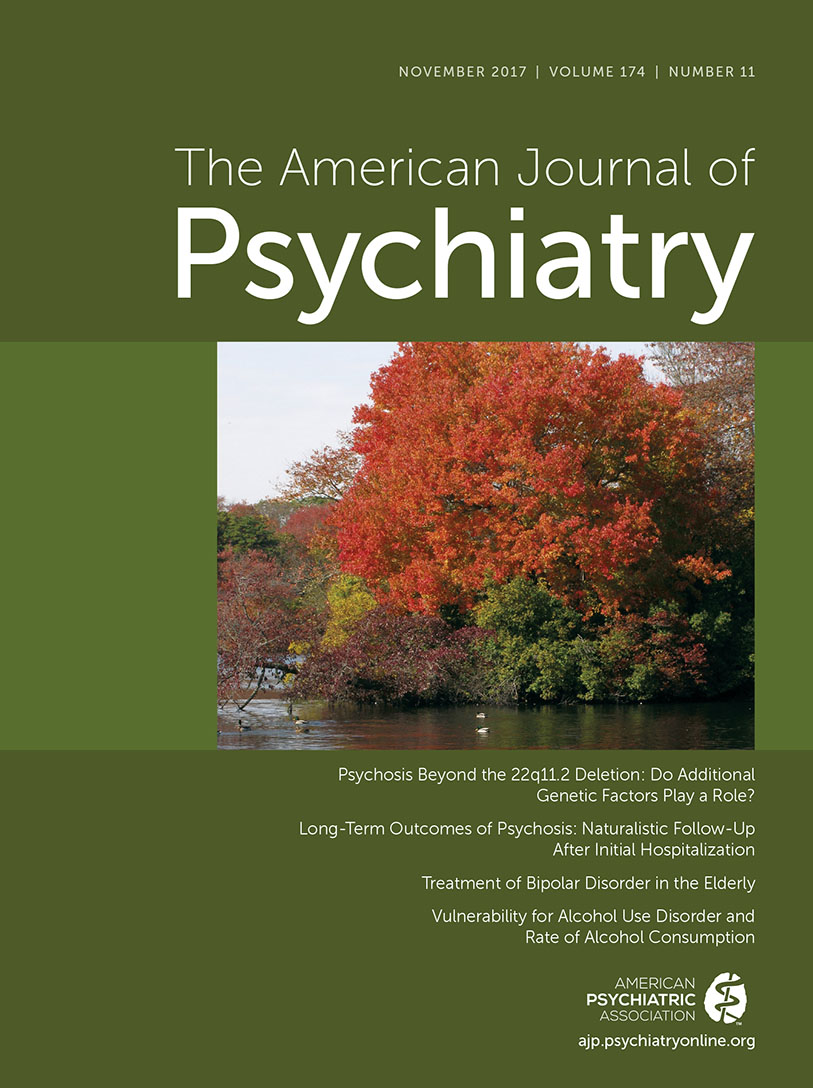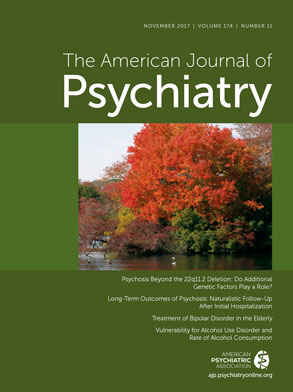Acute manic episodes are not frequent among elderly patients. Certainly first manic episodes rarely occur in this age group and, if diagnosed, should raise the question of a medical cause for the syndrome. In my clinical experience, dating back several decades, it has been unusual to hospitalize patients with bipolar disorder for a recurrent manic episode. Although I have encountered patients who had a history of recurrent mania, my experience has been that if the illness is properly treated and stabilized, recurrences are not likely to be severe enough to require hospitalization and are more likely to be mild hypomanic episodes, which can be treated on an outpatient basis. We have come a long way since the 1960s in the development of appropriate mood-stabilizing agents, such as lithium and anticonvulsants, to prevent recurrent manic episodes in patients with bipolar disorder. The major clinical problem of bipolar patients continues to be treating depressive episodes, and this is also true for elderly bipolar patients.
The article by Young and colleagues in this issue (
1) reports the results of a study of the treatment of acute mania in patients age 60 and older. Of some 2,400 patients screened for the study, 224 were randomly assigned to receive either lithium or divalproex and treated under double-blind conditions for 9 weeks. Half of the study subjects were inpatients and half were outpatients. All had met criteria at some point for bipolar I disorder, and the current episode was described as manic in 64.3% of patients, mixed mania in 23.2%, and hypomanic in 12.5%. Only 42% had been treated with a mood stabilizer in the current episode before enrollment in the study. Among the exclusion criteria was failure to respond to at least 4 weeks of treatment in the current episode with either lithium or divalproex. The mean age at onset of bipolar disorder was about 40 years. The authors hypothesized that divalproex would be better tolerated and more efficacious than lithium. To their surprise, they found that lithium was as effective as divalproex and equally well tolerated. This large study is well done and makes an important contribution to the literature.
The authors did not indicate how many of the study subjects were first-episode patients and how many had recurrent histories of bipolar disorder with a much earlier onset age, or how many recurrences of mania patients had experienced. This would be of interest because patients with a history of recurrent mania likely had been exposed to pharmacotherapy during previous episodes, and perhaps even to the pharmacotherapies involved in this study. How many patients had been treated with lithium and/or divalproex for maintenance therapy after the onset of their bipolar disorder, and what were the reasons for recurrence of manic episodes in this population? The finding of equal efficacy and tolerability of lithium and divalproex might be explained by selective exposure to one of these agents in prior episodes and lack of response to that agent resulting in patients having recurrences of mania later in life. Lithium and divalproex have been available as mood stabilizers for several decades, and it is unlikely that patients with an early onset would have not been exposed to one or perhaps both of these compounds in previous episodes or for maintenance treatment. It would be important to understand the results of this study in the context of prior treatment.
Treatment of acute manic episodes in the elderly is of course important, and the knowledge that both lithium and divalproex are effective is clinically useful. However, bipolar disorder is a recurrent condition for which there are four target areas related to treatment: acute mania, acute depressive episodes, prevention of recurrent manic or hypomanic episodes, and prevention of depressive episodes. The choice of medication for treatment of an acute manic episode should be tempered by considerations for maintenance therapy. In this regard, lithium may be useful as a maintenance therapy in the elderly, but its usefulness may be limited by an increased frequency of side effects that may occur in this population when treated long-term. At the Lithium Clinic at the New York State Psychiatric Institute, in a review of our older patients published in 1979 (
2), we found that 31 patients were over the age of 60. Many of these older patients did not have regular medical contact outside our facility. Hypertension was reported in 20% of patients, and four patients had experienced lithium toxicity, which was a statistically significantly higher rate than we found in the patients under age 60. Furthermore, only 13 of the older patients had completely normal ECG tracings. Two patients had developed cardiac sinus node dysfunction during lithium treatment (
3). At the time that study was undertaken, there were no satisfactory alternatives to lithium for maintenance therapy for bipolar disorder. Subsequently, other compounds, particularly divalproex and carbamazepine, as well as some antipsychotic medications, have been demonstrated to be useful for maintenance therapy in bipolar patients. According to a recent review (
4), lithium continues to be one of the medications of choice for the treatment of elderly patients with bipolar disorder. Thus, the relevant clinical question underlying the Young et al. study is not whether lithium worked well for acute mania in elderly bipolar patients but whether lithium is the preferred drug for maintenance treatment in elderly bipolar patients compared with other options that do not pose the risk of renal and cardiac effects associated with long-term lithium use.

